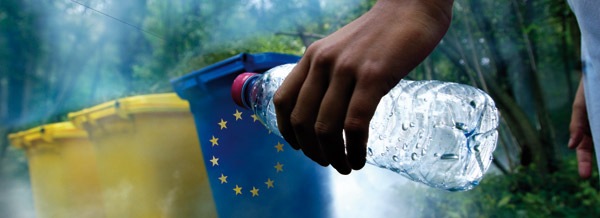Europe’s waste controls
Northern Ireland has received consent from the European Commission to relax its target for the amount of waste sent to landfill this year. Meadhbh Monahan examines how the Commission creates and implements waste legislation, and the changes being made to Landfill Directive targets.
In a bid to avoid hefty waste fines, the target tonnage of biodegradable municipal waste (BMW) going to landfill in the region in 2010 has increased from 470,000 tonnes to 919,000 tonnes.
The Landfill Directive (1999/31/EC) ruled that Northern Ireland had to reduce the amount of BMW sent to landfill to 75 per cent of the total amount produced in 1995 by 2010. This meant that a maximum of 470,000 tonnes should have gone to landfill by 16 July this year.
The Northern Ireland Environment Agency is responsible for providing figures on the amount of BMW sent to landfill to the Commission and they are expected to have the figures ready by December. However, the Department of the Environment were not certain that the region would meet the 470,000 target by 16 July this year and a change to the definition of municipal waste, to include commercial and industrial as well as household waste, was agreed with the Commission. The department argues that the current approach to reducing landfilling is focused too narrowly on waste collected by district councils and proposes that municipal waste will now cover waste managed by private sector companies. With more waste included in the definition, the new target is 919,000. A preliminary assessment by DoE suggests this will be “comfortably” met but it states that the change will not result in additional waste being sent to landfill.
EU waste laws were first introduced in 1972 when the first Environment Action Programme (EAP) was adopted. The sixth EAP is currently in practice and it has retained its original ethos that prevention of waste is better than cure and that the ‘polluter pays’.
An estimated 2.6 billion tonnes of waste is generated in the EU each year and approximately 90 million tonnes of that is classified as hazardous. The Commission is becoming increasingly concerned about the illegal dumping and shipping of waste around the expanding region. This year it recommended a dedicated EU body to oversee the implementation and enforcement of EU waste law.The Commission estimates that if waste laws are fully implemented, CO2 emissions would be reduced by 200 million tonnes a year.
The current EAP has been running from 2002 and will be replaced in 2012. It is currently being evaluated and will be updated for the final two-year period.
Once an EAP is adopted by the European Council and Parliament, waste directives are drawn up. The current waste laws fall under the Waste Framework Directive (2008/98/EC). There are also directives for separate waste streams such as shipments of waste, landfill, incineration, dealing with radioactive waste, ship dismantling, sewage sludge and hazardous waste.
These directives give member states a timetable for implementation. However, national authorities are free to decide how to ‘transpose’ the directives into their legislation. In 2007, legal action was taken against 14 member states, including the UK and the Republic, because they had not adequately transposed the Landfill Directive into their national law. The 2008 Waste Framework Directive must be transposed into the law of all member states by this December or the Commission will take legal action once again.
As well as prompting the ongoing consultation into defining municipal waste, the deadline for the Landfill Directive’s targets provoked action such as councils in England sending refuse- derived fuel in the form of waste pellets to Germany and Holland, where it is used to power factories and heating systems. In addition, George Osborne will increase landfill tax from £48 per tonne to £56 per tonne from next April in a bid to dissuade the landfilling of waste.
Thematic strategies are also carried out at specified intervals to assess how policy is being implemented. In 2005, the Commission produced a thematic strategy on the prevention and recycling of waste. It recommended that mandatory national waste management programmes be implemented.
A concurrent review is looking at the amount of waste going to landfill in the EU. It is assessing progress on waste prevention policies. The conclusions of this review are being feed into the final evaluation of the EAP.






